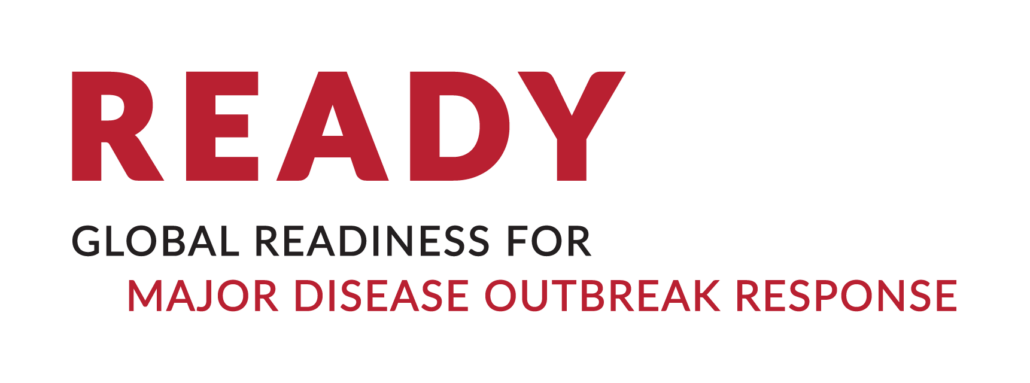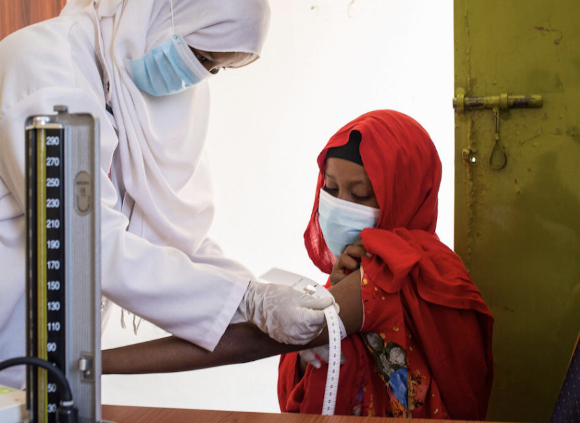Which Health Services in Humanitarian Settings should we NOT provide during COVID-19?
Speakers: Prof. Karl Blanchet, Geneva Centre of Humanitarian Studies; Dr. Esperanza Martinez, ICRC; Dr. Teri Reynolds, WHO; Dr. Apostolos Veizis, MSF-Greece; Prof. Kjell Johansson, Univ. of Bergen
COVID-19 creates unprecedented disruptions in the delivery of routine healthcare. It is crucial to ensure continued access to essential non-COVID-19 healthcare. But which health interventions should be considered essential in humanitarian settings? Join Professor Karl Blanchet from the Geneva Center of Humanitarian Studies and select panelists to explore this disputed, though critical, issue.
MODERATOR: Professor Karl Blanchet, Professor and Director, Geneva Centre of Humanitarian Studies: Karl Blanchet is a professor in Humanitarian Public Health and is Director of the Geneva Centre of Humanitarian Studies at University of Geneva and The Graduate Institute. Prof. Blanchet is also one of the co-founders of the COVID-19 Humanitarian platform.
PANELISTS
- Dr. Esperanza Martinez, Head of Health for the International Committee of the Red Cross (ICRC): Dr. Martinez is responsible for overseeing the delivery of humanitarian health services to populations affected by war and violence in more than 80 countries around the world. Dr. Martinez is a medical doctor and general surgeon, who trained in Colombia and specialized in International Public Health and Health Management in Australia. Her experience includes over ten years of fieldwork in conflict-affected countries as well as work with UN agencies, government bodies, and the private sector.
- Dr. Teri Reynolds, Clinical Services and Systems Lead, World Health Organization: Teri Reynolds leads the Clinical Services and Systems Unit in the department of Integrated Health Services at the World Health Organization Headquarters in Geneva. The Clinical Services and Systems Unit brings together for the first time WHO’s work on integrated delivery channels—including primary care, emergency care, critical care, surgical care, and palliative care—with a new focus on effective organization and people’s movement across the health system. Dr. Reynolds previously led the emergency and trauma care programs at WHO and currently coordinates efforts on maintaining essential health services during the COVID-19 outbreak. She was previously Professor and Director of Global Health for the Department of Emergency Medicine, University of California, San Francisco, and directed the Emergency Medicine Residency and research programs at Muhimbili National Hospital in Tanzania for several years.
- Dr. Apostolos Veizis, Director of Medical Operational Support, Médecins Sans Frontières-Greece: Apostolos Veizis is a Medical Doctor (General Practitioner). He is working at the headquarters of Médecins Sans Frontières-Greece as Director of the Medical Operational Support Unit (SOMA). Previously, Dr. Veizis worked as Head of Mission and Medical Coordinator for Médecins Sans Frontières and Médecins du Monde in Azerbaijan, Russian Federation, Albania, Egypt, Georgia, Greece, and Turkey, and has participated in numerous field assessments, emergency assignments, and evaluations.
- Professor Kjell Johansson, Bergen Centre for Ethics and Priority Setting, University of Bergen: Kjell Arne Johansson (MD, PhD) is a physician and professor in medical ethics at Bergen Centre for Ethics and Priority Setting (BCEPS) at Department of Global Public Health and Primary Care, University of Bergen. His research interests include priority setting, distributive justice, and applied equity impact methods in global health. Currently, he is chair of International Society for Priorities in Health (ISPH). Additionally, Prof. Johansson works clinically in addiction medicine as senior consultant and as senior researcher at the Department of Addiction Medicine, Haukeland University Hospital, where he is involved in a trial that evaluates integrated hepatitis C treatment for injecting drug users.


This website is made possible by the support of the American People through the United States Agency for International Development (USAID) under the READY initiative. READY (not an acronym) is supported by USAID’s Bureau for Democracy, Conflict, and Humanitarian Assistance, Office of U.S. Foreign Disaster Assistance (OFDA) and is led by Save the Children in partnership with the Johns Hopkins Center for Humanitarian Health, the Johns Hopkins Center for Communication Programs, UK-Med, EcoHealth Alliance, and Mercy Malaysia. The contents of this website are the sole responsibility of Save the Children. The information provided on this website does not necessarily reflect the views of USAID, any or all consortium partners, or the United States Government, and is not official U.S. Government information.


